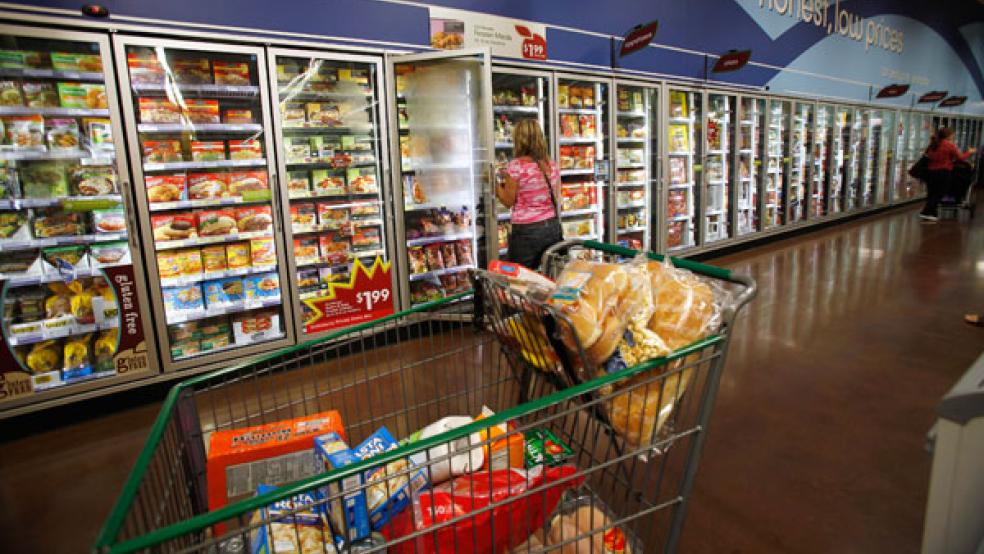The economic platform Vice President Kamala Harris outlined last week includes a proposal to limit price increases for consumer basics including food. In the wake of the inflationary surge that drove prices higher during the pandemic, Harris pledged to “advance the first-ever federal ban on price gouging on food and groceries,” as well as providing federal standards defining “excess profits” and beefing up antitrust efforts in an industry that has become increasingly concentrated.
The response to Harris’s proposal, which was extremely short on details, was swift and severe, with both conservative and liberal critics clamoring to condemn it. The New York Post denounced what it called “KAMUNISM,” while Donald Trump predicted on social media that “SOVIET Style Price Controls” would ruin the economy. Meanwhile, Washington Post Columnist Catherine Rampell accused Harris of spouting “economic gibberish,” and warned the Democratic nominee that she was only helping her adversaries: “If your opponent claims you’re a ‘communist,’ maybe don’t start with an economic agenda that can (accurately) be labeled as federal price controls,” Rampell wrote.
The Harris campaign, along with a handful of less excitable economists, say the critics are getting it all wrong. As The Washington Post’s Jeff Stein reports, Harris allies, including Illinois Gov. JB Pritzker, have pointed out that numerous states already have laws in place to limit price increases on essentials in the event of a disaster.
Additionally, there are laws that empower the president to limit price gouging on certain goods in short supply during an emergency — a power that former President Donald Trump himself used to crack down on price gouging on medical supplies during the pandemic, which began while he was in the White House.
A standard “center-left agenda”? Economist and New York Times Columnist Paul Krugman defended Harris’s economic platform, saying it is anything but radical, even if detractors insist it is. “The usual suspects are claiming that Harris revealed herself to be an extreme leftist,” he wrote. “Even some middle-of-the-road economic commentators have been hyperventilating, saying that she’s essentially calling for price controls, which is odd, because she didn’t say anything like that.”
Krugman argues that Harris is calling for legislation that bans price gouging on groceries in some circumstances, not a Soviet-style price-fixing board. Although Harris has provided only a bare outline, making the whole debate more difficult than it would be otherwise, Krugman says a bill introduced this year by Democratic Sen. Elizabeth Warren provides a possible template. The “surprisingly mild” legislation would ban price gouging on food during emergencies and is similar to laws on the books in several states. “For example, Texas (yes, Texas) prohibits many businesses from ‘demanding an exorbitant or excessive price’ on things including food and fuel during disasters,” Krugman writes.
Axios’s Emily Peck notes that 38 states have passed similar laws, including California and New York. The laws take effect only during emergencies, at which time price hikes are limited to something like 10%, and typically apply only to large retailers such as grocery store chains. “If banning price gouging is communist, then the U.S. went Marxist long ago,” Peck says.
Peck also notes that economists and their acolytes in the media usually hate these kinds of laws, since they interfere with market price signals. “Still, most Americans intuitively understand the rationale behind them, and Harris is trying to appeal to voters — not academics or newspaper columnists,” Peck says.
Would a price-gouging ban apply now? The debate raises the question of whether Harris’s plan would make any difference in grocery prices today. After all, the pandemic is over, so a law governing price increases during an emergency would likely have no effect. It could be that, as some critics have suggested, the Harris proposal is more about signaling to voters that she is on their side than actually reducing prices here and now.
Still, high food prices remain a problem for many Americans, with prices more than 20% higher than they were before the pandemic. Economist Ernie Tedeschi, formerly with President Joe Biden’s Council of Economic Advisers, told The Wall Street Journal that the profit margins at food retailers rose during the pandemic, and remain elevated.
Are higher margins at food retailers a sign of ongoing price gouging? The higher margins could reflect new consumer demand for more profitable goods, Tedeschi told the Journal. At the same time, “economists need to be curious about this and figure out what is going on.”
The bottom line: Until we see the details of Harris’s proposal, it’s impossible to say whether her plan would help reduce grocery prices moving forward or only apply during some future emergency. But there is little reason to think that Harris is mulling a Soviet-style revolution at the supermarket, even if that’s what her critics seem pleased to imagine.




